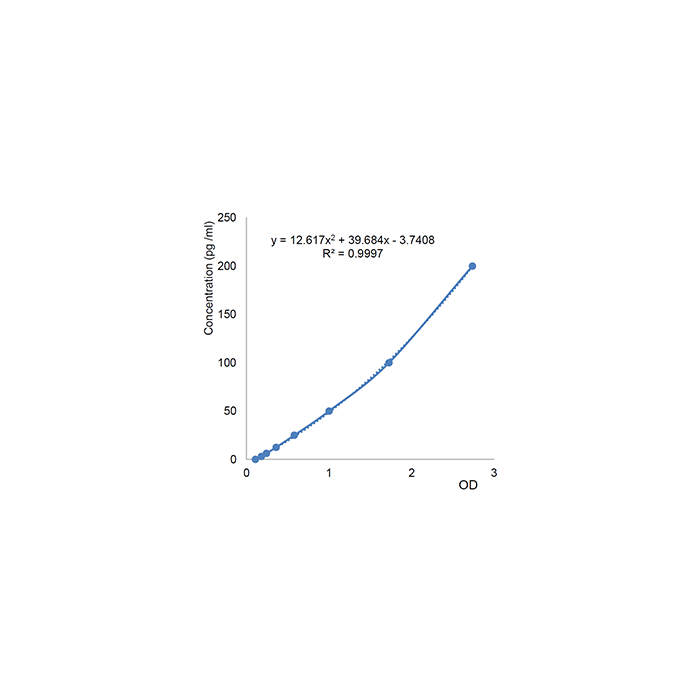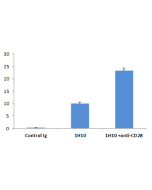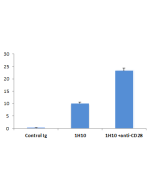Cookie Policy: This site uses cookies to improve your experience. You can find out more about our use of cookies in our Privacy Policy. By continuing to browse this site you agree to our use of cookies.
AdipoGen Life Sciences
PD-1 (human) ELISA Kit

| Product Details | |
|---|---|
| Synonyms | CD279; Programmed Cell Death Protein 1 |
| Product Type | Kit |
| Properties | |
| Application Set | Quantitative ELISA |
| Specificity |
Detects soluble human PD-1 (sPD-1) in serum, plasma and cell culture supernatant. |
| Crossreactivity | Human |
| Quantity |
1 x 96 wells |
| Sensitivity | 1.6pg/ml |
| Range | 3.125 to 200pg/ml |
| Sample Type |
Cell Culture Supernatant Plasma Serum |
| Assay Type | Sandwich |
| Detection Type | Colorimetric |
| Other Product Data |
UniProt link Q15116: PD-1 (human) |
| Declaration | In collaboration with Suzhou Bright Scistar Biotechnology |
| Accession Number | Q15116 |
| Shipping and Handling | |
| Shipping | BLUE ICE |
| Short Term Storage | +4°C |
| Long Term Storage | +4°C |
| Handling Advice |
After standard reconstitution, prepare aliquots and store at -20°C. Avoid freeze/thaw cycles. Plate and reagents should reach room temperature before use. |
| Use/Stability | 12 months after the day of manufacturing. See expiry date on ELISA Kit box. |
| Documents | |
| Manual |
 Download PDF Download PDF |
| MSDS |
 Download PDF Download PDF |
| Product Specification Sheet | |
| Datasheet |
 Download PDF Download PDF |
PD-1 (Programmed Cell Death Protein 1; CD279) is a type I transmembrane protein belonging to the CD28/CTLA-4 family of immunoreceptors that mediate signals for regulating immune responses. Members of the CD28/CTLA-4 family have been shown to either promote T cell activation (CD28 and ICOS) or downregulate T cell activation (CTLA-4 and PD-1). PD-1 is expressed on activated T cells, B cells, myeloid cells and on a subset of thymocytes. Ligation of PD-1 by PD-L1 (B7-H1; CD274) or PD-L2 (B7-DC; CD273) inhibits TCR-mediated T cell proliferation and production of IL-1, IL-4, IL-10 and IFN-γ. In addition, PD-1 ligation also inhibits BCR mediated signaling. PD-1 deficient mice have a defect in peripheral tolerance and spontaneously develop autoimmune diseases. Soluble form of PD-1 (sPD-1) is expressed upon immune cells activation and can be secreted in the serum/plasma. Soluble checkpoints, such as sPD-1 or sPD-L1, are involved in positive or negative immune regulation and changes in their serum/plasma levels affect the development, prognosis and treatment of cancer. Increase of sPD-1 or sPD-L1 levels have been detected in patients with different types of cancer. This PD-1 (human) ELISA kit is developed to detect specifically sPD-1 (human) in different biological fluids.







